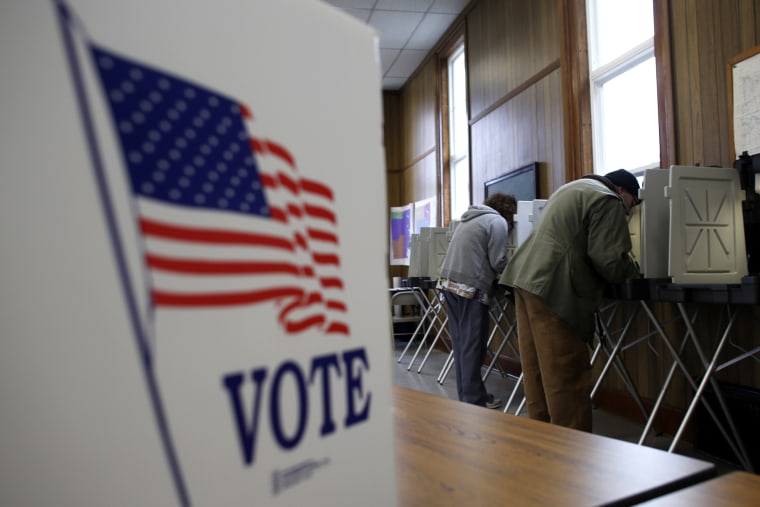A Republican-backed 2011 voter ID law has been upheld by the Wisconsin Supreme Court.
The court ruled 4-3 on Thursday that the ID law is constitutional, though it found that the state cannot require people to pay any fees to acquire state-issued identification. The justices also upheld Wisconsin's controversial anti-union law that effectively ended collective bargaining for state employees, which led to massive protests and recall elections in 2011 and 2012.
Despite the state court’s ruling, Wisconsin's voter ID law remains blocked pending a federal appeal. Federal District Court Judge Lynn Adelman ruled in April that the law was unconstitutional because it violated the equal protection clause of the U.S. Constitution.
The law, which requires voters to show photo identification at polling places, faced two separate challenges from the League of Women Voters and the Milwaukee branch of the National Association for the Advancement of Colored People. The court combined the two cases, which argued that the legislature did not have the authority to subject voters to ID requirements and that the law placed an undue burden on Wisconsinites who do not have photo identification.
Non-white residents of Wisconsin are far more likely to not have photo ID than white Wisconsin voters. While there is not new data on how many voting age adults in the state lack photo ID, research published in 2005 by the University of Wisconsin-Milwaukee Employment and Training Institute found that nearly 59% of Hispanic women and 55% of African-American men did not have valid driver’s licenses. Only 17% of white men and women lacked that identification.
Wisconsin Governor Scott Walker praised the decision in a statement. “Voter ID is a common sense reform that protects the integrity of our elections. People need to have confidence in our electoral process and to know their vote has been properly counted. We look forward to the same result from the federal court of appeals.”
Opponents of the law spoke out against the decision Thursday. Jay Heck, Executive Director of Common Cause Wisconsin, said that educating voters about current law and preparing for new, less stringent voter ID legislation will be a big part of the next several months. "It's not going to be in effect for the November election," Heck told msnbc, but that doesn't mean it won't affect turnout. "I think a lot of people are confused about whether it’s in effect or not," he said.
Any future voter ID bills will rely on the specter of voter fraud as a reason for new restrictions, but there is virtually no evidence of voter impersonation in the state of Wisconsin. The state's most recent voter fraud case - for casting multiple ballots - involved a Scott Walker supporter. Scot Ross, Executive Director of One Wisconsin Now, said in a statement, "The real fraud in Wisconsin elections is when politicians manipulate the rules on voting to give themselves an unfair partisan advantage. The right to the franchise is enshrined in our state Constitution, regardless of Gov. Scott Walker’s efforts to deny many their right to vote.”
"Our job as public officials should be to ensure that everyone who is eligible to vote is able to participate in this most basic and vital civic duty," said Dane County Executive Joe Parisi, who also oversaw elections during eight years as Dane county clerk. "Voter ID laws do just the opposite, particularly the Wisconsin law that has been cited as among the most burdensome voter laws in the country. Voting is a fundamental constitutional right and the law creates barriers to voting that disproportionally impact senior citizens, college students, minorities and people living in poverty.”
